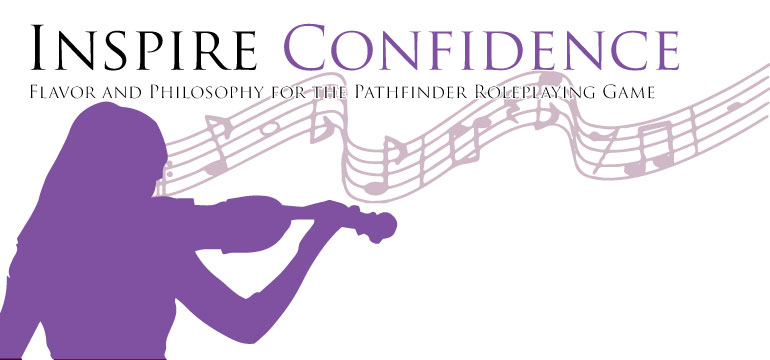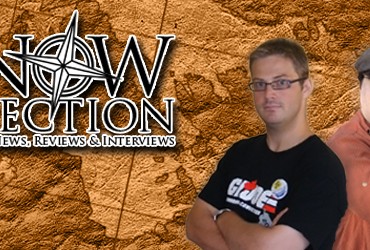I’ve been guilty of saying “Talk with people you have problems with” and “communication is key”, but that’s a lot easier to say than to do. While we learn to talk as young children, we have to figure out what to say. Some of us struggle with the “what and how” of talking with people. In my day job, I’m a hospice nurse, I have difficult conversations with people every day. Sometimes I get it right, sometimes I feel like I’ve failed to communicate effectively. Sometimes that’s my fault and sometimes it is a situation that simply cannot be overcome through talking. I also learned a lot about communicating while I was in therapy for depression and anxiety treatment – therapy is a great place to unload thoughts and bounce ideas off of someone who is an uninvolved party in your life, who can give empathetic and mostly unbiased feedback. Finding a good therapist was an enormous benefit to me. So, let’s see if we can figure out how to make difficult conversations less difficult.
WHAT IS COMMUNICATION?
First, some ground terms:
Communicator – the person who is doing the talking.
Receiver – the person who is doing the listening.
The message – what is being communicated. Despite a communicator’s best efforts, if a message is misunderstood, the receiver is the ultimate determining factor on what the message is, that’s why it is so important to have open communications.
Second, in interpersonal communication, the communicator and receiver change frequently. Right now, I am the communicator, through my blog, to you, the reader and receiver. My message is to try to help you feel more comfortable in communicating difficult messages. If you leave me a message (please do!) then you become the communicator and anyone who reads it becomes a receiver.
Communication can also occur on a completely non-verbal level – like when you smile at someone, put your hand up, scowl, cross your arms, etc. These non-verbal cues are worth paying attention to, as both communicator and receiver, because you can undermine your verbal message with confusing or contradictory non-verbal messages. It is the non-verbal cues that make talking in person easier for me and via text incredibly difficult – I like punctuation (http://www.npr.org/sections/alltechconsidered/2015/12/20/459485722/you-should-watch-the-way-you-punctuate-your-text-messages-period).
STARTING A DIFFICULT CONVERSATION
In a gaming setting, communication is key. The GM tells you what you see, who you’re with, what monsters are in the area, everything! As a player, you tell the GM and other players what you’re PC’s actions are, how you react. Back and forth, it is how we craft our game. However, sometimes something will happen at the table or during breaks that can be upsetting to us. If someone communicates an upsetting message to you, getting clarification is important. Perhaps they miscommunicated or you misread the message. What do you do?

photo credit: Self Doubt via photopin (license)
Remain calm. This is my biggest personal hurdle to communication. I struggle (like many of you) to feel acceptance and whenever I see or hear something that upsets me, my first reaction is to fight or flee, rather than try to get clarification. Remaining calm helps keep communication lines open.
If possible, ask for clarification on the spot. “Jill, I’m sorry, I don’t quite understand what you mean by that. Could you elaborate or give me an example?” Sometimes people mean what they say, sometimes they say things poorly and appreciate being given the opportunity for a “redo”.
If you can’t get clarification right away, don’t wait long and don’t let it fester. If someone says something that upsets you, speak to them when it is possible. Preferably sooner rather than later so the context is fresh in everyone’s mind. I stress the importance of timeliness for peace of mind. It is stressful to think that someone has said something personally hurtful. Perhaps they did, perhaps they misspoke, but if this person is your friend or peer then the best course of action is to clear the air quickly.
This is where it gets difficult. It can be intimidating to go to someone and ask them questions about something they said or their behaviors, especially if it was about you or something you care about. Starting the conversation should be direct about the issue, without accusatory anger, and your goal for the outcome of the conversation. Here are a few ways to begin a conversation:
- “I find it distracting when players use their devices at the table for non-gaming reasons. It pulls attention away from the game and I would appreciate it if you would only use your devices to look up rules or errata.”
- “I was hurt by your comments about my hobby/fandom. I am really excited about this. I understand if you aren’t, but I would appreciate it if you weren’t so dismissive of my hobbies/fandoms. Your comments felt very personal.”
- “We all have things we really enjoy, if this isn’t something you’re enjoying, perhaps there is something else you might like better.”
WHY WE NEED EFFECTIVE COMMUNICATION
Gamers (really, most people) can be incredibly passionate about their games and hobbies, we can also become shortsighted to the vast options and opinions that may not be shared by us. We all remember an edition war or Star Trek v Star Wars conversation that ended friendships, but that doesn’t have to happen. There are just as many opinions on a subject as there are people in the conversation. It is worth noting here that there is an enormous difference between facts – which are irrefutable, such as water is a liquid or mice are smaller than horses – and opinions – which are personal beliefs on subjects that are always subjective held by the the, like which is better: MCU or DCEU, or who’s the best Doctor. We make mistakes and so do other people. Asking for clarification helps both sides of a conversation. When in doubt, it is better to be understanding and open to the possibility that the message was incomplete rather than a person is being deliberately insulting. I would want someone to give me a reasonable doubt if I say something unintentionally dumb or offensive, so I attempt to give them that benefit as well.
When we do make mistakes, it is best to own up to them and offer a sincere apology to the person in question, they are a feeling person after all. Apologies should be short and specific – I am sorry my words (or actions) hurt you, I didn’t mean for that to happen, I hope you can forgive me.
If after speaking to a person and discovering that they said what they meant, then the decision rests with you if you wish to continue a relationship with this person. Some people aren’t nice, they don’t care about the emotions of others. There are no rules that say you have to keep people at your table or in your personal space that you are uncomfortable with. You can read about how to speak to difficult players as a player or GM in a previous Inspire Confidence blog: Ask the Bard (http://knowdirectionpodcast.com/2016/07/inspire-confidence-ask-the-bard/).







